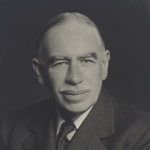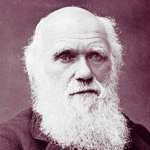We can say that Adam Smith, Maynard Keynes, Charles Darwin, David Ricardo and Karl Max are the great thinkers, economists and critics and whose views have played an important role in American ideologies and also have cause a lot of arguments in regard to business and the society today. Each of the theorists had their own opinions and so it is important for us to identify the different lines of thoughts, so that companies can be aware of the best way to apply in their businesses. The thinkers portrayed various norms of Government, Trade and Market.
Summary of Views
Adam Smith (1973- 1970)

Adam Smith is known to be the father of modern economics, and also at the same time he was a known utilitarian, and he argued that free markets had the capability of producing more than those markets that had regulations.
He argued that competition was the major aspect that drove the self interested individuals to act in some ways that served the society (Velasquez, Manuel G., 2006). The system where there is competition allocates resources effectively in response to consumer demand and therefore it promotes utility.
To add on this he stated that it is not necessary for the government to interfere with free markets because it does not bring any advantage. I can note that one country can produce a good at a cheaper cost of producing than others and this can be referred to as “absolute advantage” in producing the good.
John Maynard Keynes (1883- 1946)

He is an English economist whose opinions are in contrast to those of Adam Smith. Adam argued that government policies were not necessary to advance the public welfare but John Maynard Keynes argues that without intervention from the government, then the demand for goods will not be high enough to absorb the supply.
This will lead to some a lot of consequences with economy depression and employment being the major ones. According to John Maynard Keynes “the total demand for goods and services is the sum of the demand of three sections of the economy: households, business and government,” (Velasquez, Manuel G., 2006).
Charles Darwin (1809- 1882)

His arguments formed the basis of the inception of the Social Darwinism.
His line of thinking created a twist to the utilitarian justifications of Adam Smith’s free markets. He believed that competition is what created human progress, and his views were based on the survival for the fittest, a concept that characterized the competitive pressures in the animal world (Velasquez, Manuel G., 2006). Darwinism also mentioned the naturalistic fallacy which indicates that whatever happens naturally is always for the best.
David Ricardo (1772- 1823)

David Ricardo was a British economist whose ideas also relied on some of the utilitarian principles that Adam Smith relied on. However while Adam Smith was mentioning about ‘absolute advantage,’ Ricardo mentioned about ‘comparative advantage.’ His was a case where the opportunity cost required for manufacturing a good was lower than that of another country and vice versa (Velasquez, Manuel G., 2006).
Specializing in comparative advantage would ultimately grow the total output a particular commodity of a country’s produce and that via trade all countries stood a chance of sharing the added bounty.
Karl Marx (1818- 1883)

Karl Marx was a big critic and is prized for criticizing private property, free trade and also free market. Much of his concern was directed towards the plight of the suffering workers under capitalism. His line of thought contradicts that of Adam Smith, because he argued that private property formed the basis of the inequalities.
For example, “7-year-olds child must work 12 to 15 hours a day, 30 seamstresses working 30 hours without a break in a room made for 10 people,” (Velasquez, Manuel G., 2006). He claimed that the result of free trade would only be a series if related harmful disaster for those that were working. To add on this he also mentioned about the role that the government was to play and the policies, which were supposed to protect the rights of the working class.
Analysis and Evaluation

The expressed of the five individuals caused a lot of arguments around them. We can note that in some circumstances there are similar views and in others the views differ. Adam Smith pursued utilitarianism and advocated for free trade and open markets, and two among the five thinkers approved his line of thought. Darwin advanced free trade to a higher step by showing that it is competition that formed the basis of human progress (Douglas M2008). David Ricardo also was with the same view of utilitarianism but for his case, he developed it in a different way.
Adam Smith pointed out “absolute advantage” while Ricardo emphasized the “comparative advantage.” On the other hand two critics were of the thought that were in total contrast with the ideas as presented by Adam Smith, which denied any interventions from the government on the markets. John Maynard Keynes and Karl Marx observed that the policies of the government were important in protecting the labor force from any king of exploitation of unemployment.

From an objective point of view, each of these lines of thoughts has positive elements and negative elements that we can apply in the temporary society and economy. We can observe that competition is very good in business, and it is a concern of every business.
This makes it a must for companies to keep their products in high quality and also at a good price. This prompts every company to work more in doing the best and improving on its image in the mind of the customer.
Darwinism has right point in ideology that economic competition created human progress. It is not only in animal world that we see competition; we can also see it in the human world. So the economy will automatically improve gradually. Views on “absolute advantage” and “comparative advantage” are very important in trade today because they help companies increase output of goods with cheaper costs.
What Do You Advocate?
However, everything ought to be free and completely even in the free markets; free trades and the role of the government policies should be denied a place. It is also important for the government to have rules that protect the labor force. To add on this the government should work on protecting the economy from depression and other negative elements like unemployment. Lastly the government should observe the raise and also should reduce taxes suitably.
Conclusion
In conclusion all the five individuals have played important roles in the modern business implementation of strategies. All of their opinions have advantages and disadvantages and we are supposed to compare and pick only the good things. The table below helps provide a summary of my discussion above.
Click each name below to view the summary of views, concepts, features and criticism.
Adam Smith
Maynard Keynes
Charles Darwin
David Ricardo
Karl Marx
References:
Velasquez, M. G. (2012) Business ethics concepts & cases. Read Chapter 3
Douglas McGregor (2008) Theory X and Theory Y: The Human Side of Enterprise, McGraw-Hill, 1960/2006. Quoted in Seddon

AshemaKevin is a Freelance writer. He covers all topics revolving around business. You can follow him on X @ashemakevin
Author // Kevin Ashema

I visited your site and learned various views of government market and trade economics. I feel the quality of features and insightful opinions existing at this site are superbly educational.